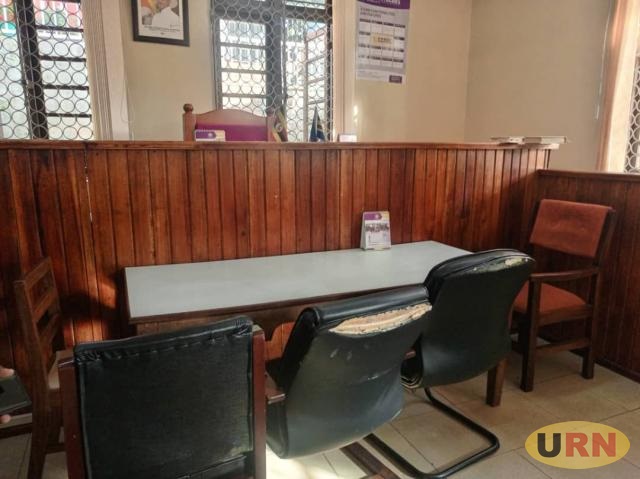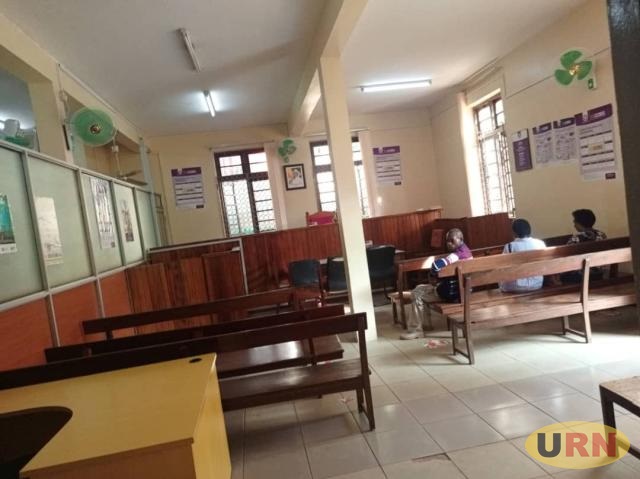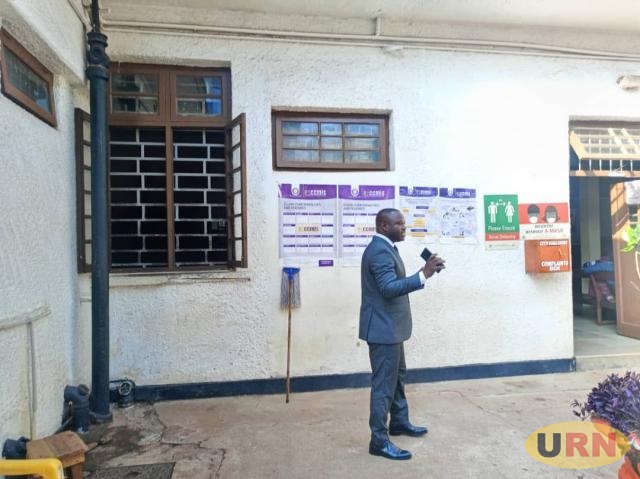
KAMPALA, UGANDA | THE INDEPENDENT | The Kampala Capital City Authority (KCCA) City Hall Court, once notorious for its unpleasant environment and disorderly setting, has transformed remarkably, improving order and efficiency. A visit by Our Reporter revealed that the once overwhelming stench, a major concern for court users and visitors, has been eliminated.
Previously, latrines located just two meters from the court’s only entrance and exit emitted a strong, unpleasant smell. Court visitors and users endured years of discomfort due to this issue. In the past, people would stand in the courtroom during proceedings, resembling spectators at a major football match. That chaos is now a thing of the past.
The court has introduced seating arrangements, allowing attendees to sit comfortably during proceedings. Additionally, those not directly involved in ongoing cases are directed to a waiting tent near the clinic, which shares the building with the court. A police officer is now responsible for ensuring order, preventing individuals without active cases from entering and causing disruptions. The bar, which previously had only two seats, has been expanded to accommodate five.
Lawyer Hamza Ssekidde recalled his last visit to City Hall Court during the COVID-19 lockdown. He had gone to represent Lubaga Councillor James Mubiru, who had been arrested alongside others. While interacting with prisoners in the cells before their court appearance, he noted the unbearable stench. “The place was stinking to the extent that I can’t even describe the smell,” Ssekidde said.
He felt pity for the prisoners, who, despite being few, rushed to the window for fresh air due to poor ventilation. According to Ssekidde, if the sanitation issue has been resolved, he congratulates the Judiciary and KCCA on this milestone.
City Hall Court attracts a large number of litigants and their relatives, yet it lacks a signpost. Many only learn of its existence after being arrested or having a relative brought there. Senior Principal Grade One Magistrate Nicholas Aisu, who oversees the court, told Our Reporter in an exclusive interview that after assuming office in January 2025, he met with his staff to discuss improvements to bring the court up to city standards.
He explained that they introduced identification documents, distinguishing court staff from those of other justice agencies like the Director of Public Prosecutions (DPP). Aisu emphasized the importance of efficiency, discouraging idleness among staff. He noted that extra chairs in office spaces, previously used by idlers and some lawyers as informal offices, were removed and relocated to the bar area for proper use.
The benches, however, remain reserved for court users. The court has also improved staff supervision, ensuring each staff member has a computer. “Now, when I need records of proceedings, I can easily access them because staff are stationed in visible areas and no longer work while standing, as was the case before,” Aisu said.
One significant issue was the presence of masqueraders, or “court blockers,” who infiltrated court proceedings to exploit justice seekers. Aisu stated that they have addressed this problem by streamlining staff operations.
“Once our staff begin work, there is minimal movement within the court. When I’m in session, I can see who is entering and exiting because the entrance serves as both the entry and exit for everyone, including inmates, judicial officers, and the general public,” Aisu explained.
To maintain order, a police officer now serves as a court orderly, guiding court users to their designated areas. Aisu warned about court blockers, who identify vulnerable individuals—those without lawyers, seeking bail, or struggling to find sureties—and take advantage of them. “These individuals interact with the accused and exploit them.
However, we have since eliminated such activities because we call people based on their file interests,” he said.
By instructing individuals unrelated to a particular case to wait elsewhere, the court has significantly reduced waiting times. City Hall Court handles cases from the Office of the DPP, the State House Anti-Corruption Unit, and the KCCA Law Enforcement team. On average, the court receives 15 to 20 case files daily, but each file may contain up to 80 suspects.
The court mainly deals with breaches of KCCA ordinances, traffic violations, unlicensed trading, and drug-related offenses, such as opium use. These cases often arise from enforcement operations, bringing large numbers of suspects to court at once. According to Aisu, most defendants do not contest their charges, opting to plead guilty and receive immediate sentencing.
In cases of unlicensed trading, confiscated goods are forfeited and disposed of by the court. City Hall Court has transitioned from paper-based case filing to the Electronic Court Case Information Management System (ECCMIS), ensuring a more efficient filing process.
When asked about the cost of the court’s improvements, Aisu explained that renovations and maintenance are handled by KCCA. “This is not a Judiciary-owned structure, although we receive operational funds from the Judiciary for day-to-day activities,” he said.
He added that cleaners are hired and paid by KCCA, but this does not compromise the Judiciary’s independence. Despite the progress, Aisu noted that the improvements are only about 50% complete. The court faces staffing shortages and has only one holding cell, which accommodates adult men. Women are kept in the courtroom under guard, reducing space for court activities.
Additionally, there is no dedicated juvenile holding area, posing security concerns. To enhance inmate welfare, the court plans to add mats or carpets in the cells and improve ventilation.
Aisu emphasized that court users are treated with dignity, allowing them to ask questions and engage with court processes. “If someone has a bad experience in court, it shapes their perception of the justice system. While fair treatment doesn’t compromise judicial decisions, it acknowledges that we are dealing with human beings who deserve dignity. That’s our priority here at KCCA,” he said. Aisu also raised concerns about how the KCCA Enforcement team handles suspects from arrest to court presentation. He urged for standardized procedures and accountability for violations.
Public complaints regarding the enforcement team’s conduct have been reported to KCCA’s Legal Director and Executive Director for review. City Hall Court has a heavy workload, managed by only two judicial officers—Aisu and Grade One Magistrate Edgar Karakire. The enforcement of community service sentences remains a challenge due to a single enforcement officer, who is a woman.
Aisu believes strengthening this office would enable lighter sentences, such as public cleaning, for petty offenders. He praised the Judiciary’s Inspectorate Team for its commitment and stated that discussions are underway to implement its recommendations. The absenteeism of lawyers, previously a significant issue, has improved, although some continue to appear in court without valid practicing certificates.
Recent records show that City Hall Court concluded 408 cases in one month while carrying forward 387 cases. Notably, the court has no case backlog. Each of the two magistrates, Aisu and Karakire, concludes approximately 150 cases per month, according to official records.
City Hall Court in pictures







***
URN
 The Independent Uganda: You get the Truth we Pay the Price
The Independent Uganda: You get the Truth we Pay the Price





